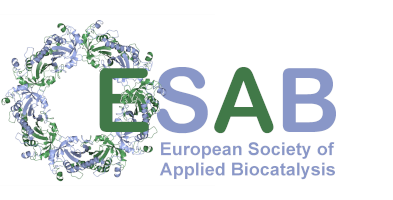Enzymatic Synthesis of Human Milk Oligosaccharides
Abstract
Glycoside hydrolases (GHs) are advantageous in carbohydrate synthesis because they accommodate naturally abundant substrates, but their efficiency is hampered by their inherent hydrolytic activity towards substrate and product. Nowadays, simple human milk oligosaccharides (HMOs) can be obtained in high titers from cell factories, and are added to top-shelf infant formula. GHs can play important roles in upgrading these simpler molecules to more complex HMOs, which are currently unobtainable from cell factories, yet may hold important bioactivities. A key objective in GH-catalyzed enzymatic synthesis of carbohydrates is to favor synthesis over hydrolysis; another is to ensure that the synthesis results in the desired product structure. This talk will summarize our work on enzyme discovery, protein engineering, and understanding of structure-function relationships towards synthesis of HMOs. Examples include synthesis of backbone structures as well as fucosylation of these. The insights are also applicable to enzymatic synthesis of carbohydrates beyond HMOs.
About the Speaker(s)
 Birgitte Zeuner is Associate Professor at the Department of Biotechnology and Biomedicine (DTU Bioengineering) at the Technical University of Denmark (DTU), and leads the research group Enzymatic Synthesis Technology. Rooted in enzyme discovery and protein engineering, Birgitte studies protein structure-function relationships to understand what directs enzyme specificity and selectivity, and she develops methods to improve synthetic reactions catalyzed by naturally hydrolytic enzymes. She has discovered transglycosylating enzymes and developed processes for enzymatic synthesis of human milk oligosaccharides (HMOs). Birgitte obtained her PhD from the Department of Chemical and Biochemical Engineering at DTU in 2014. In 2021-2022, she was part-time visiting researcher at the market-leading HMO producer DSM-Firmenich, and in 2022, she conducted a one-month research stay in the group of Prof. Carme Rovira at the University of Barcelona. In early 2024, she received the Villum Young Investigator starting grant.
Birgitte Zeuner is Associate Professor at the Department of Biotechnology and Biomedicine (DTU Bioengineering) at the Technical University of Denmark (DTU), and leads the research group Enzymatic Synthesis Technology. Rooted in enzyme discovery and protein engineering, Birgitte studies protein structure-function relationships to understand what directs enzyme specificity and selectivity, and she develops methods to improve synthetic reactions catalyzed by naturally hydrolytic enzymes. She has discovered transglycosylating enzymes and developed processes for enzymatic synthesis of human milk oligosaccharides (HMOs). Birgitte obtained her PhD from the Department of Chemical and Biochemical Engineering at DTU in 2014. In 2021-2022, she was part-time visiting researcher at the market-leading HMO producer DSM-Firmenich, and in 2022, she conducted a one-month research stay in the group of Prof. Carme Rovira at the University of Barcelona. In early 2024, she received the Villum Young Investigator starting grant.
